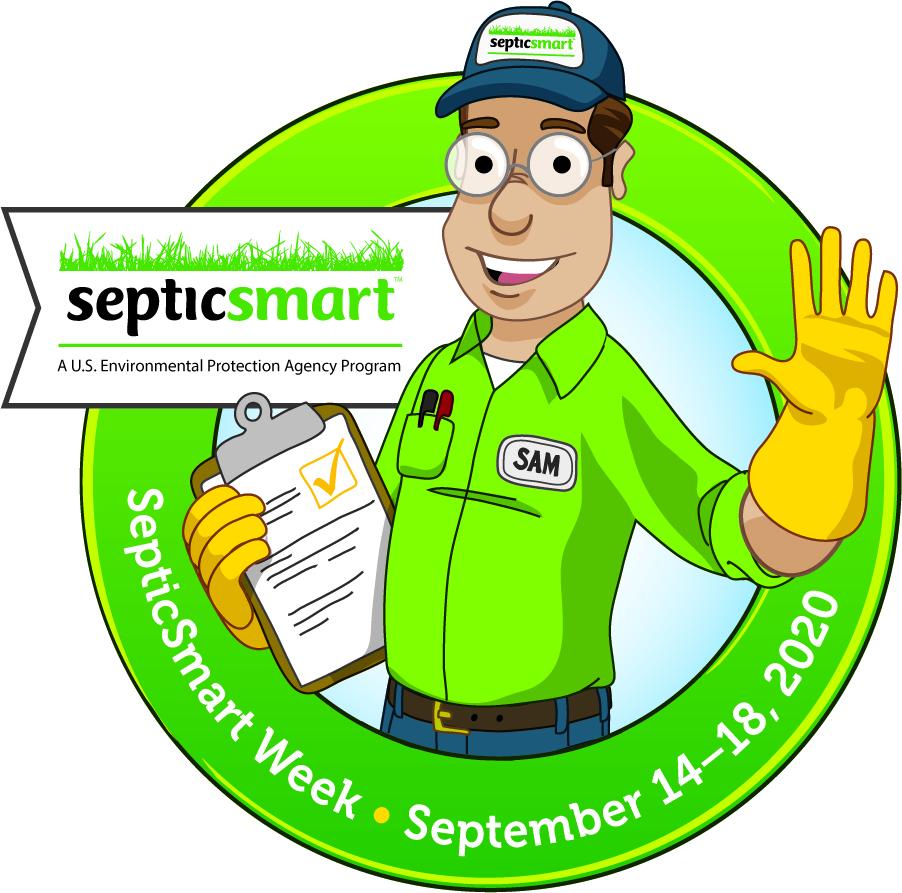Septic Tank Maintenance Protects Water Quality
As Henry County’s population continues to grow, the Henry County Water Authority (HCWA) is challenged with meeting the increased demand for water and sewer services that this growth creates.
 Today, the HCWA has eclipsed 62,000 water service connections. However, only 41% of those water customers are connected to the HCWA sewer system. As a result, nearly 60% of Henry County Water customers are septic system/tank owners. With the U.S. EPA dedicating last month to “Septic Smart” practices and promotions, HCWA officials likewise wanted to share tips with its customers to encourage smart septic tank management.
Today, the HCWA has eclipsed 62,000 water service connections. However, only 41% of those water customers are connected to the HCWA sewer system. As a result, nearly 60% of Henry County Water customers are septic system/tank owners. With the U.S. EPA dedicating last month to “Septic Smart” practices and promotions, HCWA officials likewise wanted to share tips with its customers to encourage smart septic tank management.
While regulatory oversight of septic systems is provided by the Henry County Environmental Health Office, the HCWA has a vested interest in proper septic tank management by its water customers. That’s because runoff from a failing septic system can potentially contaminate our drinking water supply. So, the HCWA is offering residents some tips on how to be a good septic tank/system owner, which in turn will help the Authority protect water quality and continue to offer clean, safe drinking water its 62,000-plus customers.
Some helpful insights on proper septic tank management include:
* Have your septic tank/system inspected every three years by a qualified professional or according to Health Department recommendations.
* Have your septic tank pumped, generally every three to five years for an average household.
* Avoid pouring harsh products down the drain, such as fats, oils, grease, chemicals, paint, medications, etc.
* Discard non-degradable products in the trash, such as dental floss, wet wipes, rags, cat litter, sanitary napkins, diapers, chewing gum, cigarette butts, etc.
* Keep cars or heavy vehicles/equipment parked away from the septic tank and drain field.
* Follow the system manufacturer’s directions if using septic tank cleaners or additives.
* Repair water leaks around the residence and use water efficient fixtures and appliances, to avoid overloading the septic tank system with wasted water.
* Divert roof drains and runoff from the driveway away from flowing into and collecting around the area of the septic tank/system.
* Be careful not to let roots from plants and vegetation grow near the septic tank or into the drain lines.
* Try to use soaps and detergents that are low in suds, that are biodegradable, and that are low or phosphate free.
* Prevent system freezing during cold weather by inspecting and insulating vulnerable system parts, such as the inspection pipes or soil treatment area.
Finally, some tips to keep you safe when dealing with your home’s septic tank/system:
* NEVER ENTER A SEPTIC TANK! Toxic gases are produced by the natural treatment processes and can kill in minutes.
* Never smoke around or near septic tank openings.
* Keep electrical lights, appliances, or tools away from the septic tank, as well as away from water or wet ground near the system.
* Manholes or septic tank openings provide access for inspections and cleaning but should otherwise be locked and/or heavy enough to prevent children from opening them.
* Whenever opening or accessing a septic tank for maintenance, use eye protection and gloves, and be sure to wash hands thoroughly with anti-bacterial soap afterward.
* Have all underground utilities and irrigation (sprinkler) systems located before addressing your septic tank.
It is the responsibility of septic tank owners to maintain, repair, or replace all components of a septic system so that it will protect our environment, water quality, and public health.
For more information about proper septic tank maintenance and management, contact the Henry County Environmental Health Office at 770-288-6190, or the HCWA at 770-957-6659.
#
Media contact:
Chris Wood, Ph.D.
P: 770-757-1681
E: chris@jwapr.com or john.wood@gcsu.edu
